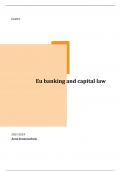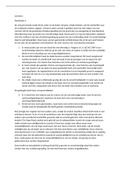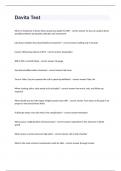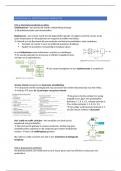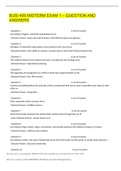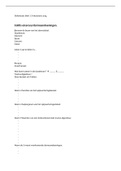College aantekeningen
Notes EU banking and capital market law (18/20)
- Instelling
- Universiteit Gent (UGent)
Those are complete notes of the entire course of 2024. It is super complete (I got an 18/20 just by using those) with everything said by the professor and what was on the PowerPoint (+the point underlined by the prof regarding the weekly news brief). note: there might be some typos, sorry in adv...
[Meer zien]
